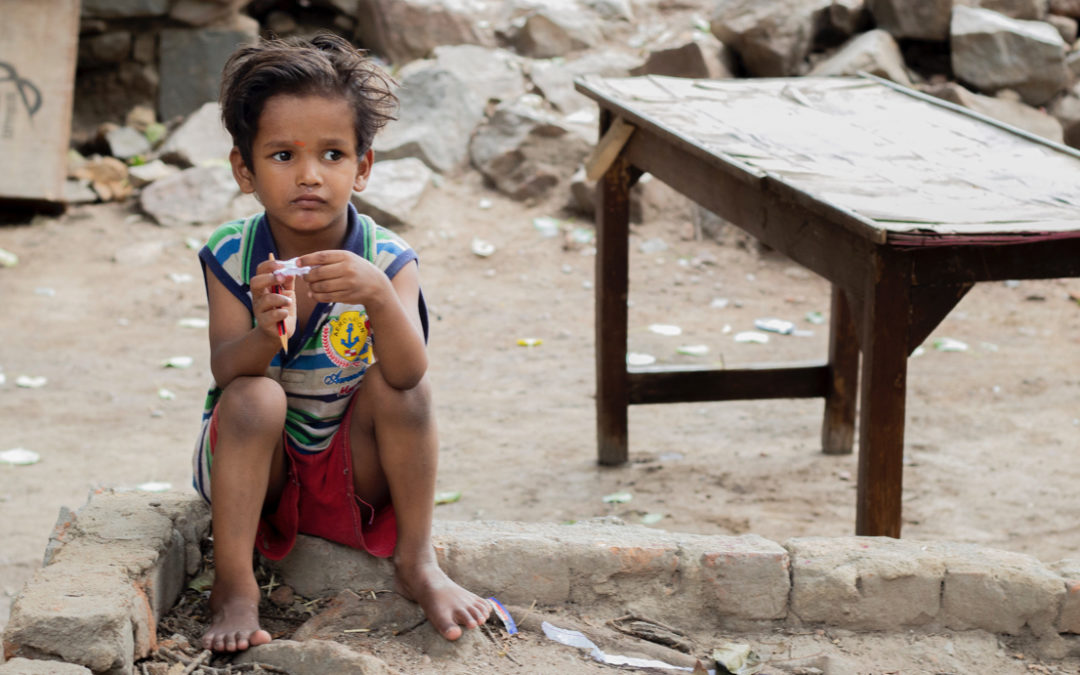Three little girls aged 2, 4 and 8 died of hunger in India’s capital city! Their autopsies revealed that there was no trace of food in their bodies and that they had most probably not eaten anything for at least 8 days. The media is abuzz with the news. The political blame game is on. I wonder what will transpire. If one is to go by precedent then I guess nothing! Malnutrition deaths have been happening every day for years. The official figure is 5000. Yes you read right: 5000 children under the age of 5 die every day of malnutrition related diseases. 5000! That is 200 every hour; 3 every minute.
I have been writing about this terrifying statistic for years now, but somehow it has never seem to elicit the anger and outrage one would have expected. I presume it was because they were just remote numbers, far away from our reality. But Mansi, Shikha and Parul died in our very own city, a city where we throw food with impunity; a city where garbage cans are replete with perfectly edible fare; where food is thrown with alacrity at parties and religious festivals; a city where neighbours remain aloof; a city that seems to have lost its heart forever.
Will the deaths of these little girls go beyond the political slugfest and get us to open our eyes and maybe our hearts. There are some lone individuals and some organisations that feed the poor with love and compassion, but they are far and few.
No one should die of starvation in any self respecting society, let alone a child. Even one child is one too many!
Many countries run community soup kitchens. I guess we could do the same. It is not impossible. It just needs the will to do so. The local temple or community centre could provide the space and a handful of grocery from every home would be enough to get things on the road.
The little girls were migrants from Bengal whose father had to come to Delhi looking for work. There are many such families who come to the big city and live a hand to mouth existence. They earn daily wages, have no savings and no access to any social welfare programmes as they do not have the required papers. Losing a day’s wage can push them to the brink.
Delhi is ‘home’ to thousands of homeless people, many of them migrants. Many find work and manage to survive, some like the family of the little girls fall of the net.
It is time we a individuals, as citizens, as civil society became aware of this stark reality and opened our hearts and reached out with compassion and love.
Is this asking too much!




